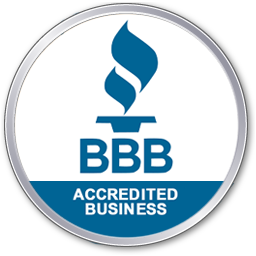Executive Summary
- Hazardous waste spills pose a strong risk to the environment and human health and must be addressed with urgency and professionalism.
- Conscientious planning can help mitigate the risk of a hazardous waste spill.
- Effective hazardous waste spill cleanup requires a careful process that involves containment, reporting, removal, and remediation.
- For reliable emergency response and a thorough cleanup of a hazardous waste spill, you should contact a professional disposal service.
Hazardous waste poses potential threats to humans, plants, local water sources, and surrounding wildlife, so a hazardous waste spill requires an urgent response from an expert responder. To minimize the risk and contain the spread, a hazardous waste or chemical spill must be addressed immediately while following local and federal guidelines.
It’s important to seek professional help so that the issue is fully and properly addressed to prevent short and long-term effects. Alpha Environmental is a reliable partner in the process of hazardous waste emergency response, and this guide covers what you should expect from the emergency response process for hazardous waste spills.
What Is Hazardous Waste?
Hazardous waste is any form of waste that has properties that make it dangerous or potentially harmful to human health or the environment. Hazardous waste can be generated by a variety of sources, like industrial manufacturing processes and automotive work. Waste is considered hazardous when it is toxic, flammable, or reactive.
This waste can come in many different forms, including liquids, solids, gases, and sludges. There are four designated categories of hazardous waste depending on the source and type—listed wastes, characteristic wastes, mixed radiological wastes, and mixed hazardous wastes.
Some common examples of hazardous household items and industrial materials include:
- Aerosols
- Batteries
- Antifreeze
- Pool chemicals
- Fertilizers
- Adhesives/epoxy
- Oils
The EPA regulates hazardous and radiological waste in accordance with the Resource Conservation and Recovery Act (RCRA). The EPA established a hazardous waste identification process to help responders determine whether waste is subject to the RCRA and ensure proper management of hazardous waste from “cradle-to-grave”.
The Critical Importance of Prompt Response
When it comes to responding to a hazardous waste or chemical spill, timing is everything. According to the US Department of Health & Human Services, hazardous waste response must account for the “golden first minutes”. The response taken within the first few minutes of an incident is crucial for setting the tone for the overall response and its success or failure.
The longer it takes to respond to an incident, the higher the risk of the threat spreading to the surrounding environment. If the proper responders do not arrive quickly, hazardous chemicals or waste can seep into soil and groundwater, posing health risks and making cleanup even more intensive.
Planning ahead goes a long way in ensuring a proper response. Some ways to ensure a quick response include:
- Establishing a Local Emergency Planning Committee (LEPC) in the community, featuring businesses that handle hazardous materials to understand risk and develop emergency plans.
- Having a business plan in place in case of a spill, including an evacuation and response plan.
- Preparing a list of authorized service providers to contact for support in addressing a spill.
- Establishing detailed plans for disposing and storing hazardous waste to help prevent a spill from happening in the first place.
- Preparing an emergency supply kit for responding to a spill and ensuring the proper protective equipment.
Your Partner in Hazardous Waste Management
Alpha Environmental handles hazardous waste disposal, cleanup, and consulting to help your business stay in line with local regulations while saving costs, time, and stress.
Step-By-Step Guide to Emergency Response
Emergency responders have a detailed process that they follow in order to ensure public health and safety while minimizing the effects of a hazardous waste spill. An effective emergency response should include the following steps.
1. Identification Phase
It’s crucial to recognize and accurately identify a hazardous waste spill so you can take the appropriate steps to address it. The identification phase requires determining whether the waste is hazardous, what type of waste is involved in the spill, and if it poses a threat to human or environmental well-being.
Experts will use EPA standards to determine whether the waste is hazardous and identify the type of waste based on physical properties and the four categories of hazardous waste. This identification phase will help them determine next steps.
2. Assessment Phase
During the assessment phase, it’s essential to evaluate the scope and potential risks of the damage. Responders must assess what risks the spill poses to the environment and those exposed. Understanding these risks will allow for the safest and most effective possible response.
When assessing the magnitude of a hazardous waste threat, responders consider the following risks:
- Harmful vapors
- Flammability and potential sources of ignition
- Reactivity to air, water, and other chemicals
- Toxicity
- Risk of combustion
Experts during this phase will work to observe how wide-ranging the effects of the spill are and how much of an area is affected. This process may also involve detailed testing to determine whether the surrounding soil and water is contaminated with waste.
3. Containment and Isolation
Once responders identify the area, they can begin to contain the area. It’s crucial to take immediate steps to contain the waste and prevent it from spreading to additional areas.
Authorities on site must isolate the affected area and evacuate everyone to a safe area away from exposure risk. If the threat is inside, contain the threat and move at least a half mile away from the “danger zone”, staying uphill, upwind, and upstream from the threat.
If the threat is outside, bring everyone indoors and prevent outside air from entering by closing vents and sealing any gaps that outdoor air can pass through.
It’s important that only experienced professionals with the right tools and personal protective equipment (PPE) work to address the waste emergency. Improper equipment can leave a person vulnerable to exposure and harmful health effects.
4. Notification and Reporting
After determining the scope of the damage and ensuring that everyone is safe, responders to the spill must notify relevant authorities. This notification should include the type of spill and the extent of the damage.
In Oregon, the proper authority is the Oregon Department of Environmental Quality. An experienced emergency response team will understand the necessary notification and reporting requirements and how to address them, so it’s important to contact a licensed and experienced hazardous waste disposal service.
5. Response Action
The final step of an emergency response is, of course, spill cleanup. This process involves cleaning up and disposing of hazardous waste in accordance with local and EPA regulations, decontaminating the area using approved decontaminating agents, and disposing of any contaminated materials like clothes and equipment.
At Alpha Environmental, we take careful steps to ensure a safe and effective hazardous waste disposal process. Our team starts with an urgent response, 24/7 to make sure we can contain the spread and begin the cleanup process as soon as possible.
When we arrive, we’ll carry out decontamination procedures using the correct cleaning agents and equipment. We’re careful to clean up the area and dispose of all hazardous materials effectively while complying with all local regulations. We’ll also take the appropriate steps to ensure that no threat to the environment or human health remains after the fact, including water and soil sampling.
The Aftermath: Remediation and Restoration
Thorough remediation is essential for protecting the long-term health of an area and ensuring that there is no lasting risk of exposure following an emergency incident. To confidently address the full scope of a spill, professionals must consider all potential impacts, including the risks to soil, groundwater, and other local water sources.
Other remediation steps include:
- Testing for residual hazardous waste in the area where the spill occurred
- Treating the area with appropriate chemical agents to neutralize any residual threats.
- Ensuring proper ventilation to release vapors in the area
- Conducting follow-up soil and water testing to ensure the environment is free from residual contaminants
- If there is contamination of the surrounding soil, removing the contaminated soil while following a proper disposal process
Alpha Environmental Services: Your Rapid Response Partner for Hazardous Waste Spills
Hazardous waste spills offer several potential risks to environmental and human health and safety. A rapid and effective response can make all the difference in minimizing the potential threats and ensuring the safety of those in the vicinity of the spill.
Alpha Environmental provides hazardous waste disposal to protect you, your property, and the surrounding environment. If you’re unsure what constitutes hazardous waste, we also provide hazardous waste removal consulting, following standards set by the Oregon Department of Environmental Quality.
We’ve served businesses and residents throughout Portland and the surrounding areas in Oregon for over 21 years. We’ll use our expertise to ensure the best possible outcomes for hazardous waste removal to protect your property.
Contact us today for support with hazardous waste removal consulting or disposal.




